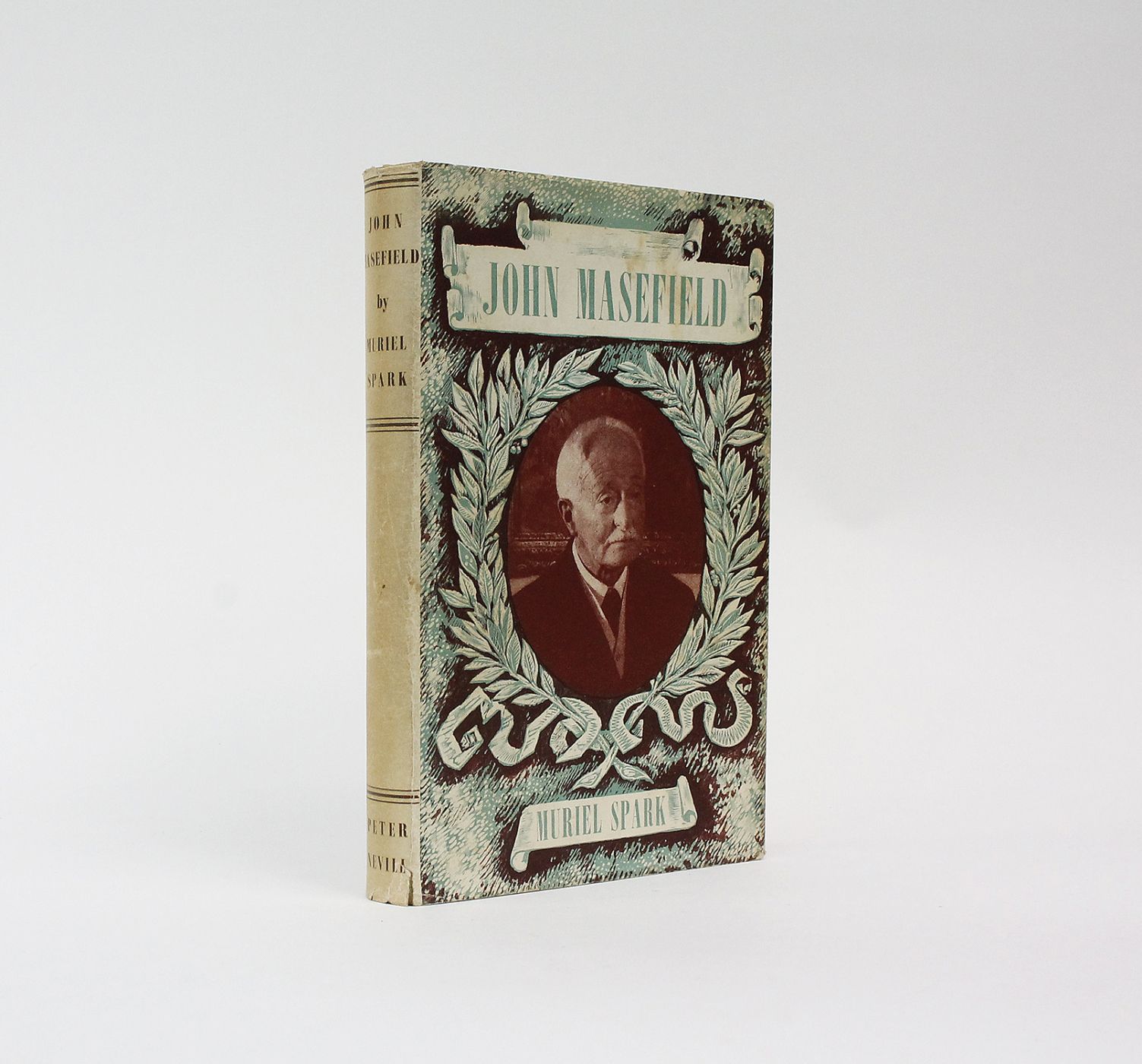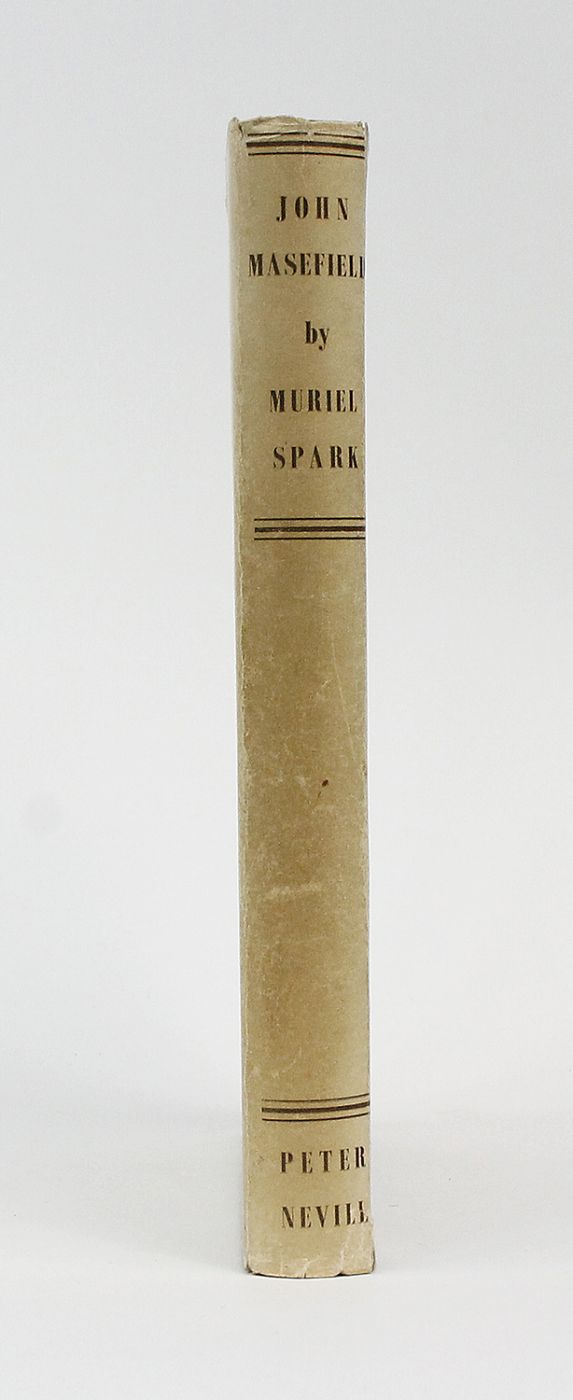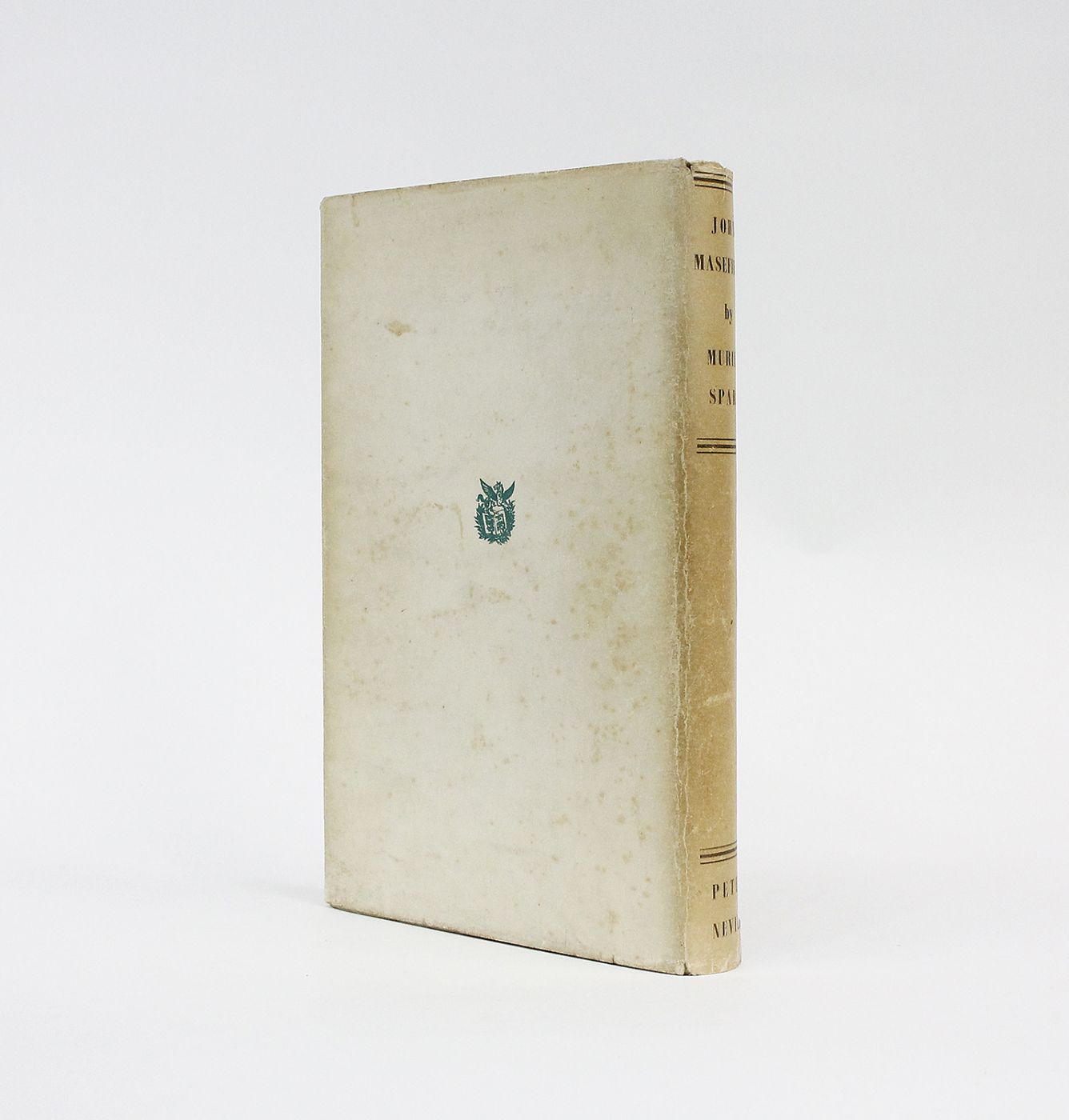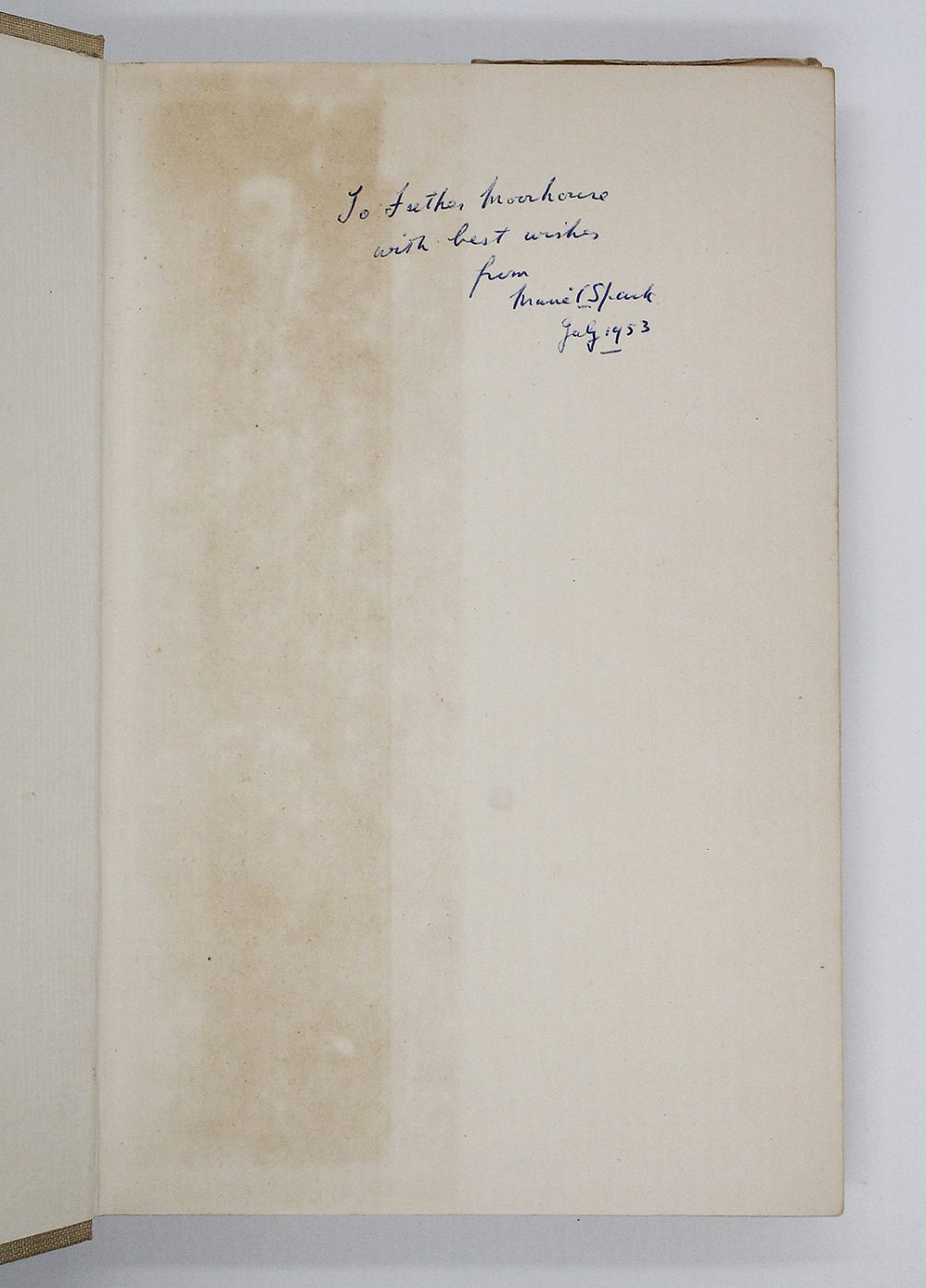JOHN MASEFIELD
First edition, first printing. Inscribed presentation copy. Original fawn cloth lettered in green to the spine, in the dustwrapper designed by Weissenborn. A near fine copy, the binding square and firm, the contents clean throughout. Light spotting to the fore-edge of the page block, and offsetting to endpapers. Softening to spine tips, the upper tip with a tiny nick. In the dustwrapper, rubbed to edges and folds with a handful of nicks and closed tears. Darkened to the spine, lightly spotted to the rear panel, and with a few light marks to the front panel. Not price-clipped (15s. net to the front panel). Scarce signed.
Inscribed by the author in blue ink to the front free endpaper, "To Father Moorhouse / with best wishes / from / Muriel Spark / July 1953". We have been unable to identify the recipient, but the inscription notably coincides with Spark's conversion to Catholicism (joining, along with Graham Greene and Evelyn Waugh, what Martin Stannard refers to as the "grand triumvirate of Catholic-convert novelists"). In her autobiography Spark recounts that "In 1953 I was absorbed by the theological writings of John Henry Newman through whose influence I finally became a Roman Catholic. [...] On 1 May 1954 I was received into the Church at Ealing Priory." Stannard notes that the book on Masefield, completed in 1952, "was the last book Muriel wrote as an agnostic". An admirer of Masefield since attending a reading with her friend Frances Niven while attending Gillespie's School in Edinburgh, two decades on, in 1950 (soon after completing her study of Mary Shelley) she contacted Masefield, who agreed to her writing the book, which (according to Stannard) "offers a priceless insight into her intellectual life at this moment of transition." (Muriel Spark, 'Curriculum Vitae' [London, 1992]; Martin Stannard, 'Muriel Spark: The Biography' [London, 2009]; Tominaga 1331)
Stock code: 22084
£375
Published:
Category
Modern First EditionsSigned / Inscribed
Literature





